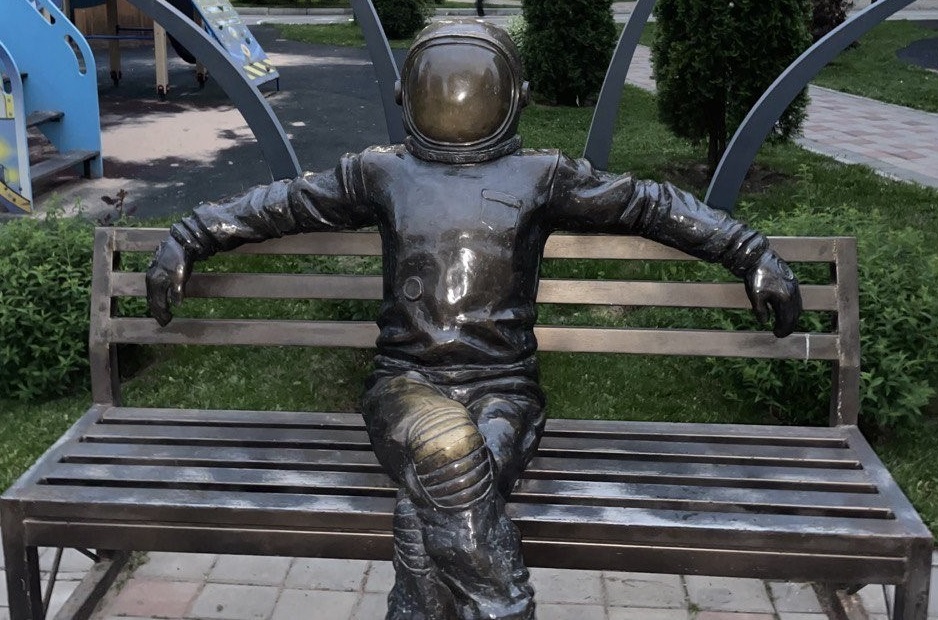The names of the heroes of the new Kazakhstan
Almaty wants to change the naming of a street in the city centre, shelving the cosmonaut Jurij Gagarin to make room for the memory of a local opera singer. The demolition of the Soviet mythological apparatus is one of the faces of de-Russification. But there is no lack of perplexity among the local inhabitants.
Almaty (AsiaNews) - The authorities of Almaty, Kazakhstan's most populous city, have announced that they will rename the main part of the street that runs through the city centre, the Gagarina prospekt, in honour of the great Kazakh opera singer Ermek Serkebaev, whose birth centenary falls on the 100th anniversary of his death in 2013 after a life spent in the former capital of the south of the country. The prospekt was named after the first astronaut to reach space since 1961, when the Soviet Union celebrated in Jurij Gagarin its superiority over the entire western world.
De-Russification in this case also becomes a demolition of the Soviet mythological apparatus, which Putin's Russia is instead trying to revive, and the reactions of the local population in this regard are rather mixed, as documented by a street survey published by Orda.kz. Valentina, a lady from Almaty who has lived in the city since Gagarin's time, says that ‘our bosses like these name changes, and they don't ask us for our opinion’, even though an online vote had actually been proposed on the municipal administration's website. However, Valentina assures that ‘we like the Gagarin title, it makes us proud to represent such an important historical event’.
Another younger ‘almatynets’, Sergej, says that ‘I don't know who this Serkebaev is, while the whole world knows about Gagarin’, and in any case ‘a lot of money will be wasted on the name change, and we have much more pressing problems’. Other inhabitants are more in favour of the Kazakh names, to defend their own identity and culture, and as Erlan says, ‘an opera singer may be little known, but displaying his name helps to reconstruct the memory of men who have made a great contribution to Kazakh history’.
On today's Gagarina prospekt, moreover, there is no shortage of symbols and works of art related to astronautic feats, also recalling that Gagarin's spacecraft was launched from the Baikonur base in Kazakhstan and was called Vostok-1 (‘East-1’), underlining the Eurasian pride of the Soviet empire, which is often referred to in Russia, but also throughout Central Asia. The Russian vaccine against Covid, hastily made in the late 2020s to anticipate Western ones, was named Vostok-5, harking back to cosmic feats.
Halfway down the avenue is an installation of Gagarin in his diving suit, sitting on a bench, replicated in a courtyard of one of the blocks of flats in the area, in what is called ‘Gagarin Park’. Children love to sit in the astronautical embrace, and young people in general support the heroic exaltation, not feeling the attraction of national opera: ‘We'll have to study to find out who this singer is, while Gagarin's name is known and sounds good’.
Other opinions more openly support the idea of the ‘new Kazakhstan’ much touted by President Kasym-Žomart Tokaev, stating that ‘old things must be overcome, our language and culture must flourish and change for the better, this is what we want to pass on to our children’. There were also many reactions on social sites and networks, where some recalled the controversy of 2017, when another avenue in the city, the Furmanova prospekt, became the current Nazarbaeva prospekt, replacing the Russian-Soviet revolutionary poet Dmitry Furmanov with the still president-eternal Nursultan Nazarbaev. In that case, rather than de-Sovietisation, the intention was to celebrate the figure of the Kazakh ‘father of the fatherland’, which has since fallen into disrepute after the events of recent years, so that many are now calling for a new name for this street too, or at the very least making appeals such as ‘give us back Furmanov!
Tokaev has repeatedly condemned the Kazakh practice of naming streets and erecting monuments only after ‘relatives and friends’, and proposes a higher vision of the Kazakh national consciousness, one that overcomes the colonial past, but also ‘tribal narrowness’. Kazakhstan is a proud, but unstable nation, spread over a large territory where semi-nomadic ancestors roamed, and it is not easy to establish the right perspective to cross it in all directions.







.png)










